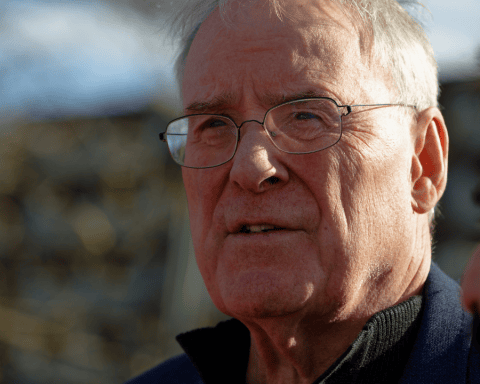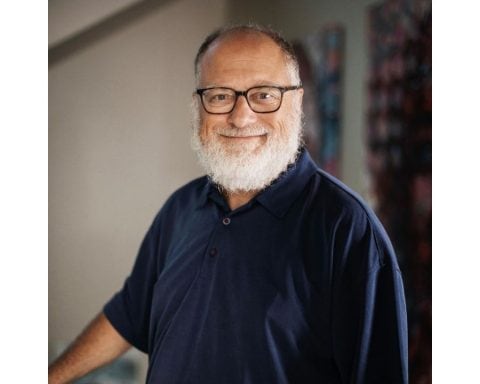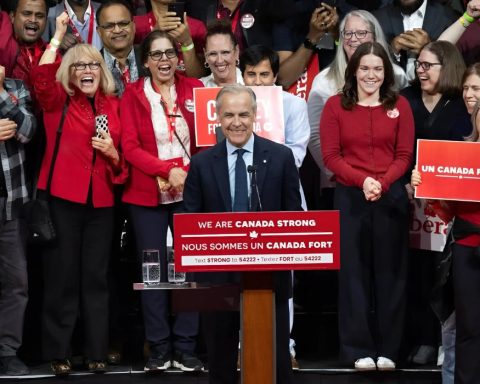Throughout much of his career, Ralph Nader has railed against those in the corporate world responsible for hurting people and the planet. The former Green Party candidate for U.S. president and legendary consumer advocate has spent decades holding various industries to account for malfeasance.
But in his latest book, Nader has taken a different tack. In The Rebellious CEO, he celebrates 12 executives who he says have a vision that extends past profits to social good. Nader hopes that the stories of these 12 CEOs, who include Yvon Chouinard of Patagonia and the Body Shop’s Anita Roddick, can inspire others to inject social purpose into their businesses.
Corporate Knights co-founder and CEO Toby Heaps spoke with his old boss (Heaps was Nader’s presidential campaign manager in the 2008 U.S. election) about his latest book. Here’s an edited and condensed excerpt from their conversation.
You’ve written a lot of books. Why this one now?
It’s long overdue. There’s a lot of exposés about how bad so many CEOs of major corporations are these days. How they operate in a very autocratic top-down manner, they suppress free speech in their companies, and engage in the mistreatment of workers and consumers and greenwashing of environmental issues. Now they’ve reached a new stage of decline – they’re pursuing their own personal interests at the expense of their companies. Instead of investing in R&D or expanding reserves for pension funds or raising salaries, they’re buying back their stock. In the last 10 years, they’ve bought back about $8 trillion in stock in the U.S., and mostly inappropriately. They’re not getting the stock at a low price and trying to create a profit out of it; they’re getting it at higher prices because it raises the metrics for their executive compensation.
So, how do we evaluate these CEOs? One way is to say that they have so much power, they’re terrible, and you don’t need yardsticks, it all speaks for itself. That doesn’t get us anywhere. What gets us somewhere is to show that there are CEOs who got it right. And they did it by reversing the business model. That’s true for most of the 12 executives that I profiled in the book. They start out with a vision that is predicated not on simply maximizing the profits; they’re predicated on the treatment of workers, consumers and the environment. These 12 CEOs elevate the expectations of the public so that they come back to [other] CEOs with demands that cannot be rebutted by free-market fundamentalism. These CEOs met the predicates for a market that works as our servant, not as our ruler or master.
And that’s what Ray Anderson [founder of Interface] did, starting in 1994 when he went to a lecture by Paul Hawken, who is also one of the CEOs in the book, and he was transfixed. He went back to Interface and said, “We’re reinventing this company so it’s going to be carbon neutral.” And, every year, he became more and more carbon neutral. And he reduced expenses and increased profits. Now they’re moving to carbon negativity.
You mention different characteristics of these real leader CEOs. Is there a kind of litmus test that you could boil it down to?
They had wildly different personalities. Some of them were real extroverts; some of them were just nose to the grindstone. Some of them proselytized, like Ray Anderson – he made hundreds of speeches. But they did have similar characteristics. Number one is they admitted their mistakes in public, which is very unusual. I think they wanted, in effect, pressure to come in on them to correct it. They weren’t secretive at all. Sol Price of the Price Club, he would actually invite people from the other companies that were starting these big-box stores and share all his ideas and successful business strategies.
Another common characteristic is they almost never complained about regulation. They’d say, “We’re way ahead of them.” Like when Anita Roddick opened up her shops in the U.S., she pestered the Food and Drug Administration for more rigorous regulation.
And of course, they were criticizing their own industry, which is very rare. After John Bogle, the founder of Vanguard, wrote a senior thesis on mutual funds at Princeton, he went into the industry. And what he saw was these mutual funds with shareholders taking short-term viewpoints, gouging their investors with relentless fees and being too amenable to the demands of Wall Street analysts that badgered them for higher quarterly earnings.
A common characteristic [of these CEOs] is they almost never complained about regulation. They’d say, ‘We’re way ahead of them.’
- Ralph Nader
These leaders you’ve written about to raise expectations and inspire, there aren’t a lot from recent decades. Does that indicate that these kinds of CEOs are a dying breed?
There were some old-fashioned virtues that you don’t see very often anymore. Some of these executives insisted on having unions before there was even a union organizing. That was [Bernard] Rapoport, [founder of] American Income Life. The younger CEOs today have a contempt for unions because they think they freeze innovation and agility.
Another common thing is they did not overpay themselves when they could have. At a time when the major airlines were losing money and going bankrupt, Herb Kelleher [co-founder of Southwest Airlines] was the lowest-paid CEO of the major U.S. airlines. He took about $750,000 a year – he had stock options, of course. He would chuckle and say, “I’m the lowest-paid guy in the shop, and I’m making more profits than any of the others.”
Those are some characteristics I don’t think you find so much today. When they start with a certain business model and they go public, they’re instant multimillionaires.
This book might come as a bit of a surprise given your record of holding corporations to account – coming out with more of a positive message. But these folks that you pro- filed, none of them are saints. What are some important ways these CEOs fell short?
I’m not saying that all their products were totally superb. Though it’s really hard to fault Yvon Chouinard [founder of Patagonia]; his products are so durable and reusable. They were the first company to change the farms to organic cotton. However, he had to buy from suppliers in Asia, and the suppliers in Asia are not going to adhere to his level of worker regard. He tried to get them to pay their workers more, and he actually succeeded compared to, say, Apple in China.
Anita and Gordon Roddick made what they admitted was their biggest mistake when they went public. Then they were bought up by a conglomerate. Roddick had a great deal of difficulty, before she died from hepatitis, in sustaining the corporate culture that she wanted. They were persuaded they’d have more resources to open up more shops to do more good in the community, and all that backfired.
![]()
There’s more impunity and more financialization and more short-termism. But in spite of that, clean energy investments over the last four years are growing six times faster than GDP at large. So, even with all these people trying to stop electric cars, trying to stop solar panels, it seems to be moving . . .
China did us a big favour in dropping solar energy prices [through subsidies and price interventions]. New companies going into solar energy are out-competing fossil fuels all over the world. But what if China didn’t reduce the price of solar? It would have taken longer for solar to do that. Then, we’re not cranking in all the distortions of free-market mythology. There is no free market, really, other than a lemonade stand by 10-year-olds on some rural road. Monopolistic practices detonate the free market. Corporate crime, subsidies and bailouts, deceptive advertising [all] detonate a free market. Tax loopholes disadvantage small business in favour of big business.
And yet, the biggest rebuttal by big business of criticism is “We’re just responding to market demand.” In other words, even though this market fundamentalism is riddled with mythologies, it still has a tremendous grip on the political and economic cultures in our country and the academic teaching. These executives in my book basically say, “That’s just a lot of BS.”
This will be coming out at the same time as our flagship ranking of the world’s 100 most sustainable companies. Those companies, on average, are making half their revenue from products or services that have a clear social or environmental benefit. They all have lots of room for improvement, too. What is your message to them?
Well, they’ve got to do more than what these 12 did. They’ve got to be proselytizers. They have to go out, connect with civic groups, consumer environmental groups, their own peers at business conventions. These 12 profiles were very outspoken, and they didn’t care about people who said, “You better be quiet, you’re going to lose business, you’re doing controversial things.”
Alfred North Whitehead once said that a society is great when its businesses think highly of their mission. They have to make time for their civic mission no matter how busy they are, if they really think that what they’re selling needs to reach more people and displace the part of the economy they think is harmful and wasteful and corrupting. Without the civil society, nothing works. And so, the question they all have to ask themselves is how do we nourish and invigorate and empower the civil society?





